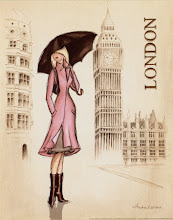-unknown author

If your life was a painting, what would it look like? What colors would prevail? Would it be abstract, impressionist, realistic, pop art? Is it still life or is it a defined image with a subtle background?
True, we may not all be Van Goghs and Picassos but we all hold the paints, brush, and blank canvas necessary to manifest out deepest expressive and conceptual intentions. motivated and stirred by our (and even possibly others) daily occurrences, we have the ability and talent to craft striking works of art with our individual strokes and shades. Every day we create new knowledge, skills, and experiences to attach to the final masterpiece.
It’s your challenge in life to make sure that the ultimate piece is as you see fit; if you’re not pleased with what you see on the canvas at this current point in time, it’s up to you to spice it up with something innovative and brand new, or to tone it down with some more subtle ‘tones’. You’re in command of the limitless color selection and styles sporadically splashed or meticulously streaked across the palette. You decide what actions to take, what hobbies to entertain yourself with, who to associate yourself with, and what experience you will pursue. Such choices will lead you toward the finishing work of genius you aspire to fashion.
Oftentimes, you don’t have any clue what the end result will be; and frequently, you’ll get aggravated at the process of finding what you hope for, what you deserve and what you really want. As a little word of relief though, don’t fret…no one honestly has a true clue of what we are doing. All you can do is enjoy the steps, frolic along the always winding paths, savor every experience, and take pleasure in ‘painting’ your masterpiece. As Danny Kaye once so brilliantly advised, “Life is a great big canvas and you should throw all the paint on it you can.” And if that’s not enough to hearten you, always remember, "...godliness is profitable for all things, having promise of the life that now is and of that which is to come" (Timothy 4:8).

